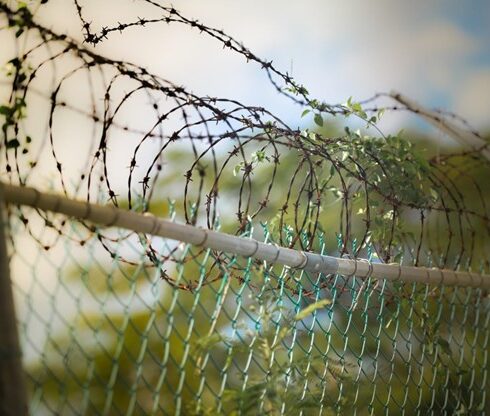Bolivia & Colombia Lobby for the Legalization of the Coca Leaf
Introduction
B
olivia and Colombia have launched a joint effort before the UN to begin the process of removing the coca leaf from the UN’s list of banned substances. [1] Colombian President Gustavo Petro and Bolivian President Luis Catacora both intend to legalize the coca leaf in their nations so that it can be freely marketed. Bolivia has sought legalization of the coca leaf for the past forty years, but Colombia’s push for legalization was initiated recently in December 2020. [3] The Colombian bill intended to move coca farming from a highly lucrative illegal and private practice to a highly lucrative state industry. In the ideal execution of the legislation, the Colombian state would buy up the entire coca harvest at a figure of 2.6 trillion pesos, or $680 million USD – a small price compared to the yearly receipt of 4 trillion pesos ($1 billion USD) for “coca eradication programs”. [3] This state purchase would create a legal coca industry where the leaf would be hypothetically used for its traditional pain-killing properties. [3]
This 2020 bill passed unanimously but was left unacted until the election of leftist Colombian president Gustavo Petro, who has been incredibly critical of the war on drugs. [4] Now, the two South American nations plan to broach the subject at the United Nations Commission on Narcotic Drugs held from March 13-17 in Vienna, Austria. [1] The UN’s decision on this issue has not yet been released to the media.
State of Coco Farming
Coca farming has not been prevented by its illegality. In 2020, Colombian Senator Ivan Marulanda claimed that there are over 200,000 families linked to coca farming within Colombia. [3] In rural parts of Colombia like Tumaco, the second largest producer of coca in the nation, coca farming is the financial lifeblood of the municipality. [5] Petro claims that Colombian farmers have few crop options and has said that the United States’ war on drugs has been a devastating crusade against impoverished coca farmers. [4] Colombia and Bolivia have consistently claimed that the coca leaf has been demonized because of its use in cocaine production, and that the traditional uses of the coca leaf in Colombian, Bolivian, and other South American cultures have been stymied because of the illicit label given to the coca leaf by the respective governments. [1]
Hardly a coincidence, however, is the fact that the International Narcotics Control Board (INCB), a body controlled by the UN, has determined that Colombia is the highest producer of coca leaf for the year 2021. [6] Specific statistics released by the United Nations Office on Drugs and Crime showed that Colombia coca leaf farming led to a production of 1,400 tons of cocaine in 2021, which showed a “sharp increase” in cocaine production. [6] Another report by UNODC showed a 15% increase in coca leaf production from the years 2019-2020 in Bolivia. [7] These UN studies firmly demonstrate that coca leaf as well as cocaine production have reached record highs in Colombia and Bolivia. [8]
The concerning facts about Colombia and Bolivia’s coca leaf and cocaine production do not stop there. The U.S. State Department has determined that Colombia is responsible for 97% of the cocaine that enters the United States, and the Biden administration has urged President Petro to maintain a strong Colombian front for the war on drug trafficking. [6] Based on Petro’s support for the legalization of the coca leaf on the world stage, it is incredibly unlikely that he is concerned with these difficult truths. However, Petro and his administration are not the only ones who believe that legalization of coca would resolve many criminal issues.
A senior policy analyst, Steve Rolles, for a British non-profit called the Transform Drug Policy Foundation argues that a legitimization of the coca and cocaine industries in Colombia would destabilize cartels, and use of the money from a legitimate cocaine trade would significantly benefit the Colombian government. [2] The analyst then insists that the war on drugs has been utterly useless, and that people will use drugs regardless of their illicit nature. Therefore, legalization merely takes the power away from the violent and ruthless cartels and puts economic power in the hands of the government. [2]
The U.S. State Department has determined that Colombia is responsible for 97% of the cocaine that enters the United States, and the Biden administration has urged President Petro to maintain a strong Colombian front for the war on drug trafficking.
Corruption
At first glance, Rolles’ argument seems practical, but he forgets one key factor: the Colombian government is marred with corruption. While true that drug users clearly are not concerned with the legality of their drug, and cartels only benefit more from drugs being impossible to purchase on a free, legal market, Rolles mistakenly assumes that the Colombian government is well-equipped to manage a $1 billion dollar industry within a few months’ notice. In fact, just in early March 2023, President Petro was forced to save face by launching an investigation into his own brother and son for allegedly receiving bribes from the cartels. [9] A government that cannot help themselves from benefiting from an illegal industry can be trusted little to manage the development of a legal one.
Recommendation
The solution is simple in concept, but complex in execution. First, it is clear that Colombia is not ready to take on the responsibility of a legal coca industry. While obvious that the war on drugs has failed in decreasing cocaine production in Colombia, Bolivia, and other top coca-producing nations, the answer is not to halt the prevention of narcotics production. If the Colombian government wants to be trusted with the legalization of a main ingredient in an illicit substance, it first needs to show that it can manage itself and preserve a corruption-free environment. Drug trafficking will only increase if Colombia is given such a high-stakes responsibility at this point in time. The UN nor the U.S. has the time or resources to manage a corrupt Colombian government.
Biden’s administration has little hope of altering the outcome of such increasingly popular legislation in Colombia and Bolivia. The seeds of this regulation were planted over three years ago, and its growth was only stunted by waiting for a like-minded president to enact what Colombian representatives already wanted. If the UN agrees to legalize coca farming and the coca leaf in Colombia and Bolivia, the U.S. must resolutely maintain the regulations that prevent its import into the U.S. While a frustrating blow to those who have dedicated their lives to combatting drug trafficking, any legalization of such a narcotic should only further determine the United States to rid itself from cartel influence and the narcotics they bring with them.
[1] “Colombia to endorse Bolivia’s bid to remove coca from list of banned substances”. MercoPress, 24 February 2023. https://en.mercopress.com/2023/02/24/colombia-to-endorse-bolivia-s-bid-to-remove-coca-from-list-of-banned-substances
[2] Gorder, Gabrielle. “Could Gustavo Petro Legalize Coca and Cocaine in Colombia?”. InsightCrime, 21 June, 2022. https://insightcrime.org/news/could-gustavo-petro-legalize-coca-and-cocaine-in-colombia/
[3] Tomaselli, Wes Michael. “Colombia Is Considering Legalizing Its Massive Cocaine Industry”. 01 December, 2020. https://www.vice.com/en/article/epdv3j/colombia-is-considering-legalizing-its-massive-cocaine-industry
[4] Khan, Carrie. “Why Bolivia And Colombia Want Coca Leaf, Cocaine’s Main Ingredient, Legalized”. 13 March, 2023. https://www.wkyufm.org/2023-03-13/why-bolivia-and-colombia-want-coca-leaf-cocaines-main-ingredient-legalized
[5] Noriega, Christine. “Colombia’s Radical New Approach to Cocaine”. 30 October, 2022. https://foreignpolicy.com/2022/10/30/colombia-cocaine-coca-industry-policy-war-drugs-gustavo-petro/
[6] “Colombia sigue liderando la producción de cocaína, según la ONU: estas son las cifras comparadas con Bolivia y Perú”. 10 March, 2023. https://www.infobae.com/colombia/2023/03/10/colombia-sigue-liderando-la-produccion-de-cocaina-segun-la-onu-estas-son-las-cifras-comparadas-con-bolivia-y-peru/
[7] “Fact Sheet – Bolivia Coca Cultivation Monitoring Report” https://www.unodc.org/ documents/crop-monitoring/Bolivia/Bolivia_Coca_ Survey_Fact_sheet_Executive_Summary_2020.pdf
[8] “La ONU advirtió que la producción de cocaína llegó a niveles récord en Colombia, Perú y Bolivia”. 16 March 2023. https://www.infobae.com/america/mundo/2023/03/16/la-onu-advirtio-que-la-produccion-de-cocaina-llego-a-niveles-record-en-colombia-peru-y-bolivia/
[9] Janowitz, Nathaniel. “The Brother of Colombia’s ‘Anti-Corruption’ President Accused of Taking Cartel Bribes” 08 March 2023. https://www.vice.com/en/article/4a3g4p/colombia-gustavo-petro-family-corruption-investigation





